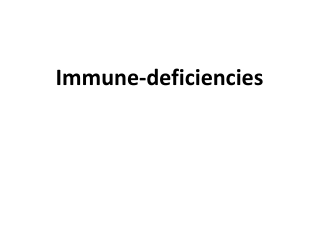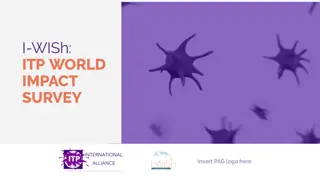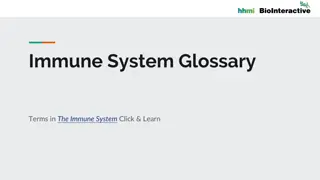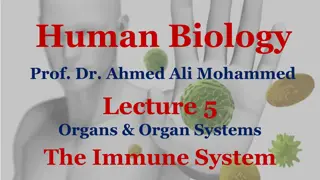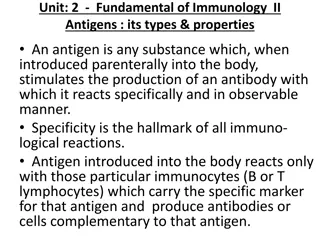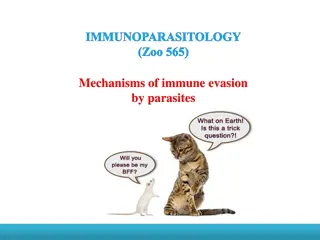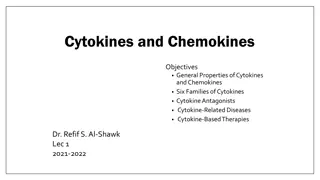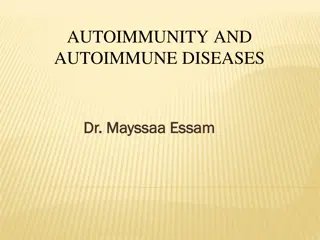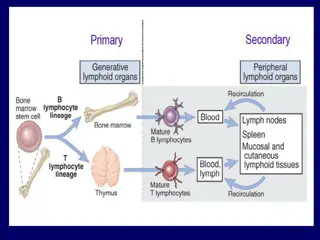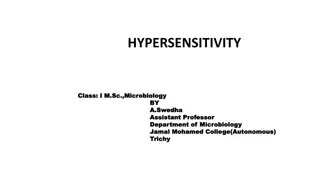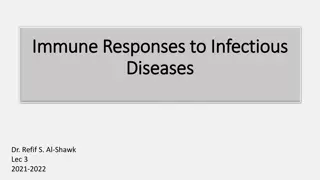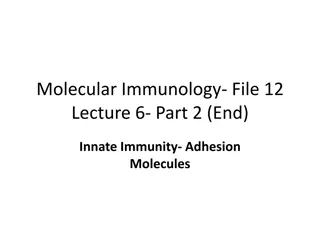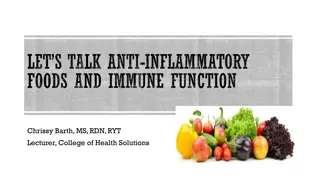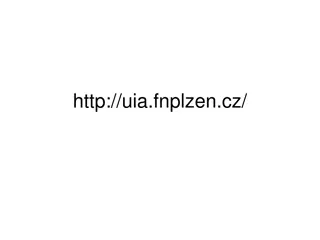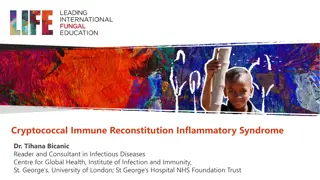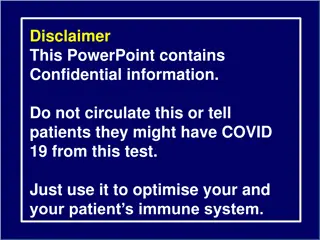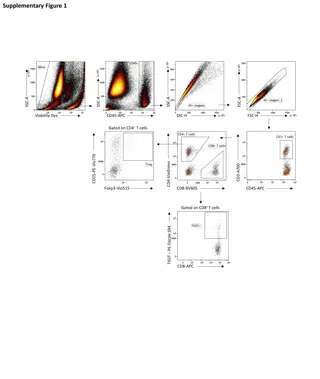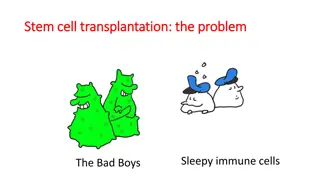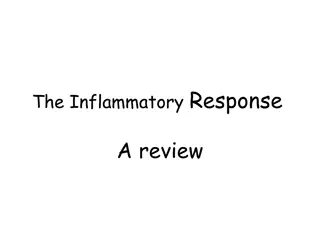Understanding the Significance of Cytokines in Immune Response
Cytokines play a crucial role in immune response activation and regulation. They are secreted by various cell types like lymphocytes, monocytes, and macrophages, exerting diverse biological functions, including immune system development, inflammatory response induction, and hematopoiesis regulation. T-cells require two signals for activation, with Signal 1 from antigen-specific TCR engagement and Signal 2 from costimulatory ligand interaction. The complex network of interacting cells involved in immune response generation is orchestrated by cytokines secreted by T-helper cells, dendritic cells, and macrophages.
Download Presentation

Please find below an Image/Link to download the presentation.
The content on the website is provided AS IS for your information and personal use only. It may not be sold, licensed, or shared on other websites without obtaining consent from the author. Download presentation by click this link. If you encounter any issues during the download, it is possible that the publisher has removed the file from their server.
E N D
Presentation Transcript
Cytokines Cytokines continued continued Class name VILS Course name - ZOO-Biotech (Rohit)
How T-cells are activated Two signals are required for T-cell activation namely Signal 1 and Signal 2. Signal 1 is provided by antigen-specific TCR engagement. Signal 2 is provided by contact with a costimulatory ligand which is expressed by functional APC (Antigen Presenting Cells). When a T cell receives both Signal 1 and Signal 2, it will be activated to produce cytokines. Signal 2 results from an interaction between specific costimulatory receptors (like CD-28) on T cells and costimulatory ligands (CD80/CD86) on dendritic cells.
Overview of T cell activation Signal 1 (Antigen specific TCR engagement) Signal 2 (provided by interaction of co-stimulatory molecules) Source@wikipidea
Cytokines has been named on the basis of their secretion from different cell type 1.Lymphokines those cytokines which are secreted by lymphocytes 2. Monokines secretion from monocytes and macrophages 3.Interleukins secreted by some leucocytes and act on other leucocytes 4.Interferon secreted by viral infected cells 5.Chemokines- For chemoattraction of immune cells
Cytokines has different biological functions The principal producers of cytokines are 1.T-helper cells 2.Dendritic cells and 3.Macrophages cells Cytokines secreted by above mentioned cells are responsible for activation of entire network of interacting cells. Different biological responses includes 1. Development of cellular and humoral immune response 2. Induction of inflammatory response 3. Regulation of hematopoiesis 4. Control of cellular proliferation and differentiation
Overview of Cytokine functions in innate and adaptive immunity Whatever secreted by activated T-helper cells involved in induction of inflammatory development of cellular and humoral immune response, regulation of hematopoiesis etc. the cytokines response, Interaction of antigen with Macrophages and then activation of T-Helper cells leads to release different cytokines which generates a complex network of interacting cells in immune response.
Cytokines secreted by T-cells involve sub-populations of T-Helper cells As we know that T-Helper cells are one of the principal cell responsible for the secretion of cytokines which in turn shows various physiologic responses. There are two sub-populations of CD4 T-helper cells on the basis of cytokines they secretes. 1.T-helper 1 2.T-helper 2 CD4 positive T-helper cells exert helper functions through secreted cytokines either in autocrine fashion or in paracrine fashion.
Cytokines secreted by T-helper 1 and 2 sub-populations T-helper 1 cells secretes following cytokines :- IL-2 (Interleukine-2) IFN-GAMMA (Interferon-gamma) TNF-BETA (Tumor necrosis factor) CSF (Colony stimulating factor) IL-3 T-helper 2 cells secretes following cytokines :- Functions- helps in Macrophage activation, T-cyctotoxic cell activation and Delayed type hypersensitivity), help in IgG production. IL-3 IL-4 IL-5 IL-10 IL-13 Functions helps in eosinophil and mast cell production , IgE production and total antibody production s
Secretion and Functions of different cytokines during innate and adaptive immunity
Diagram how immune cells are regulated different cytokines. depicts by secreted
General model of signal transduction mediated by most cytokine receptors. As we know that Cytokines has binds to its receptor present on target cells Cytokine binding to its receptors Phosphorylation of A transcription factor called STAT ( Signal Transducers and Activators of Transcriptions) STAT forms dimer and translocate to nucleus where it initiates the transcription of specific genes.


